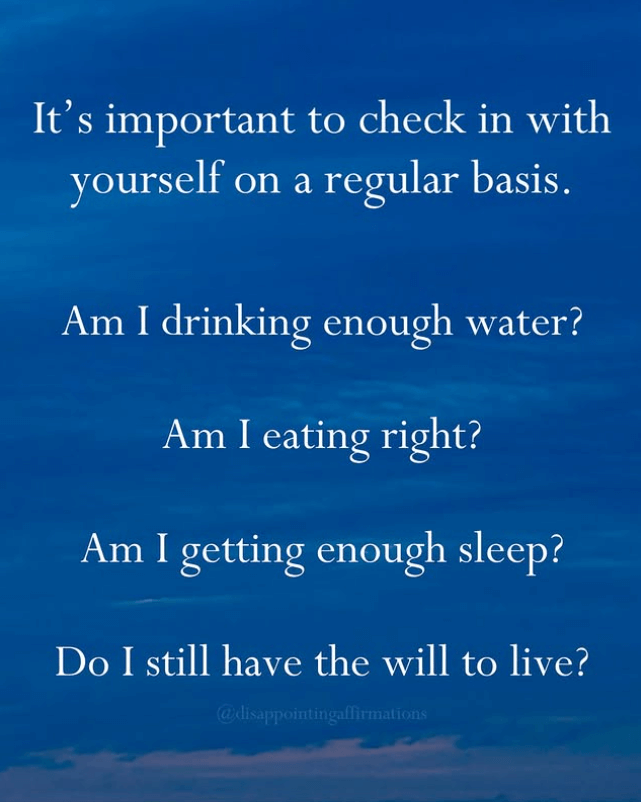
Everyone knows about affirmations, and I usually talk about positive affirmations because they are effective. But when I read about disappointing affirmations, I felt a bit unsettled.
I wondered why anyone would promote negative affirmations or something that might make someone feel low. So, I read and researched to understand why people are talking about this and why it has become so famous.
Who is Dave? The Mind Behind the Trend
Jump to section
Dave Tarnowski created an Instagram account called “Disappointing Affirmations,” which has 2.3 million followers. He also wrote a book with the same title.
He was a writer who, after abandoning his unfinished novels, turned to memes. In an interview, he explained that he combined humor and memes with Q&A because he finds traditional positive affirmations to be empty and overly optimistic.
He mentioned that while affirmations work for many people—like his ex, who practices morning affirmations and is very successful—they feel meaningless to him.
The Issue with Toxic Positivity
Dave’s perspective touches on a broader issue that resonates with many: the discomfort or rejection of what some call ‘toxic positivity.’ He pointed out that there is a segment of the population that considers the whole positive mental attitude often called PMA nonsense.
It’s unrealistic to expect people to be okay every day; Some people may have an okay day only once a month or less.
He acknowledges that while people say, “If you tell yourself you can’t do something, well, you’re right,” there’s some truth to that, but some people, like him, struggle to focus on one thing, let alone more than one. However, that doesn’t mean they aren’t trying.
Building a Community
Dave Tarnowski mentioned that he runs a few other Instagram accounts, some for years, and this new page grew from those. There were more niches one was called “Nick Cave and the Bad Memes.”
It started with silly memes, and suddenly, he realized he could reach a larger audience. Initially, he faced accusations of glamorizing mental illness. “How can you glamorize mental illness?” he asked, but he didn’t let it stop him.
He feels good about creating communities, including with this new page. One of the biggest things for people with mental health issues is the desire to feel seen, not judged, but acknowledged for who they are.
Controversial Posts
He shared that he’s certainly had some controversial posts, like one of his early ones: “Have a panic attack, you’ve earned it.”
He has experienced many panic attacks throughout his life—they’re not funny when you’re in them.
But having a sense of humor about it, acknowledging that it happens, and the “you earned it” part is like saying you’ve gone through enough to get to that point.
While some people were upset, asking how he could make fun of this, others who also experienced panic attacks found it funny.
What disturbed him when he started the page was that some people were taking the posts literally. For example, one post said, “It’s okay to not be okay, just make sure you pretend you’re okay around others.
Emotions make people uncomfortable.” Initially, he attracted the wrong crowd, but the beauty of Instagram is that when people realize, “Oh, it’s not that kind of page,” they unfollow.
Then, others who understand will follow. After four months of the page’s existence, people are starting to grasp what it’s really about.
Motivation Behind the Trend
When asked what motivated him to start poking fun at pop psychology and overly sweet motivational psychology that dominates the landscape, he said it was just something new.
He didn’t have it in the forefront of his mind like, “Let me combat toxic positivity.” That wasn’t the initial idea. He carried over the Q&A more than the memes and then combined the two.
One thing he learned from the Q&A is that he is not alone with his feelings—far from it, and it’s sad how many others feel the same.
He has nothing against positive affirmations but takes issue with toxic positivity. He attended a retreat at the Omega Institute in New York, where he did a 5-day phone detox.
Spending time in their bookstore, filled with positive affirmations, love, and light, made him realize there’s nothing for the other side.
What he creates is parody, so when he puts out content like “Have a panic attack—you earned it,” some people take it literally, which can be misunderstood. But it’s meant to highlight the irony and humor in difficult experiences.
Disappointing Affirmations from Dave’s Book
- Have a panic attack. You’ve earned it.
- Have a meltdown as a treat.
- Don’t be sad that it’s over; be sad that you’re the reason it’s over.
- Everything will be okay, just not for you. Sorry.
- Be proud of how far you’ve come. I thought you’d be dead by now.
- It’s never too late to give up. Or too early.
- You are exactly where you’re supposed to be because you make terrible decisions.
- You are not alone; everyone else is sick of your shit too.
- No one is coming to save you. You are the adult. I’m sorry.
- You can do it! But you probably won’t.
- Unfollow your dreams.
Disappointing Affirmations Can Be Positive Ones
Disappointing affirmations may sound strange, but they can play an important role in manifestation. Understanding negative feelings is part of growth.
Realizing that it’s okay to feel less than perfect creates space for positive changes. Embracing both low and high emotions can lead to a more authentic manifestation practice.
I appreciate how disappointing affirmations bring a sense of humor to difficult situations. It’s okay to struggle, and acknowledging those struggles can pave the way for healing and personal growth.
Disappointing Affirmations from Dave’s Instagram
More info: @DisappointingAffirmations







Conclusion
Both positive and disappointing affirmations are valuable. If positive affirmations work for someone, they may not work for someone else. For those for whom positive affirmations don’t work, disappointing affirmations teach that it’s not necessary to always be positive; feeling normal is also acceptable. Life isn’t always positive or great. It’s okay if you’ve failed at something. It’s okay if you’re feeling sad today.
What are your thoughts on disappointing affirmations? Have you ever felt that traditional affirmations didn’t resonate with you? Share your experiences in the comments below!
